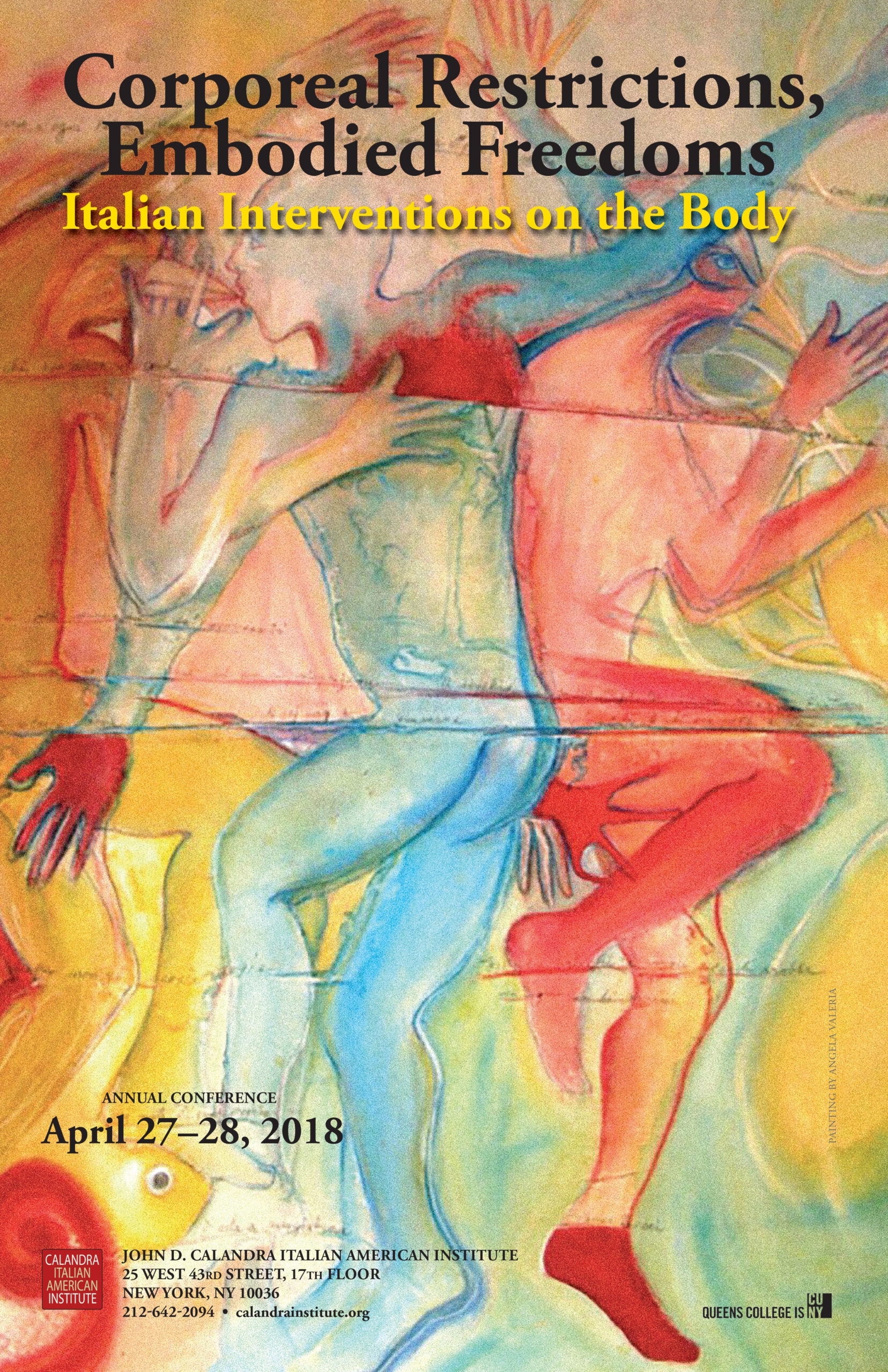Annual Conference: Corporeal Restrictions, Embodied Freedoms—Italian Interventions on the Body
The 1935 song “Faccetta Nera,” a paean to the Fascist imperialist enterprise in Africa, addresses the “little black face” that is the anonymous Abyssinian woman, an object of Italian colonial desire. Th is jaunty march with its suggestive miscegenation proclaims a gendered liberation of African women with the line “our law is slavery of love” (la legge nostra è schiavitù d’amore). Th e song was made famous by tenor Carlo Buti and eventually became a staple of festa band repertoires among the diaspora. In contemporary Italy black women are routinely taunted and humiliated with this Fascist-era tune. Th e song is but one example of the myriad ways in which the body fi gures in discourses and cultural productions concerning Italy’s histories and identities, within and well beyond the country’s geopolitical boundaries. Th is interdisciplinary conference recognizes the body in its literal, metaphorical, and hybrid constitutions as found in the modern nationstate of Italy, the larger Italian diaspora, and among former colonies. It builds on the array of seminal work on body politics mainly developed in women’s and gender studies where corporeal imaginaries construct and reposition identity and agency. Italy and italianità, with its complex position within a Western hegemony—connected to colonialism, transnational migration, and larger discourses of power—is a particularly interesting locus for focusing a series of critical interventions around the body.


Recent Comments